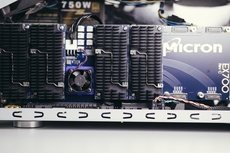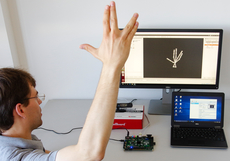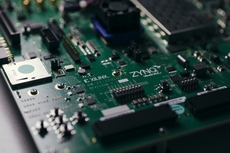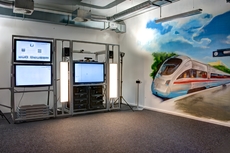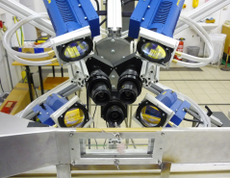Research
Mobile devices, which are always connected. Artificial intelligence applications in high performance clusters. Many world-changing innovations of the last decades were driven by innovations in communication and information systems. You can be part of this as well by participating in the teaching and research of this very institute! We offer a broad spectrum of research areas: Our chairs are researching on high frequency and communication technology, on cognitive systems, on hardware-oriented technical computer science, and on neuro-information technology.
Communication systems are among the most important technical systems worldwide. The demands on the systems are constantly increasing as data volumes and user numbers increase. The Chair of Radio Frequency and Communication Technology is actively engaged in the current research areas of the upcoming 5G mobile radio standard, but also does not ignore basic research on radio frequency components. Another field of activity is the use and development of multicopters as a sensor platform. Students are involved in the entire range of research activities as part of their final theses.
The chair hardware-oriented technical computer science researches new architectural concepts for the realization of runtime-adaptive, performance- and energy efficient digital systems. Contradicting requirements for energy efficiency, computational power, and size are an important characteristic of many applications. This conflict cannot be resolved using traditional approaches. Heterogeneous systems with hardware accelerators on the basis if CPUs, GPUs, and FPGAs are a promising alternative. The chair hardware-oriented technical computer science investigates the hardware architecture of these systems, system management, potentials of new technologies for heterogeneous systems, and systematic modeling and exploration if the design space are
Both dedicated hardware accelerators in the basis of dynamical reconfigurable FPGAs and combined hardware/software systems are considered. Applications from embedded systems and high performance computing are of interest, since their contradicting requirements on energy efficiency, flexibility, performance, and size prohibit a realization with traditional hardware- and software solutions. Of special interest are database systems, sensor fusion in medical context, and electronic image correction.
The Chair of Cognitive Systems, funded through high-level collaborative research centers, is investigating the technical support of the interaction of man and machines. In modern systems, this happens through language, gesture and haptics - keyboards and mice no longer play a role. The machine has a cognitive model of interaction and reacts appropriately and individually to the user - not only reflecting his problem and his knowledge level, but also on his current state of mind. We help stressed drivers as well as needy residents or professionals under time pressure.
The professorship for Neuro-Information Technology (NIT) is located at the intersection of information processing (image-processing, pattern recognition and artificial neural systems) and human-machine interaction (HMI). This includes the application of state of the art approaches for signal, image and video based applications. Examples can be found in event or object detection, driver assistance systems, and the recognition of pain, gestures or emotions in the development of human-machine interactions.

